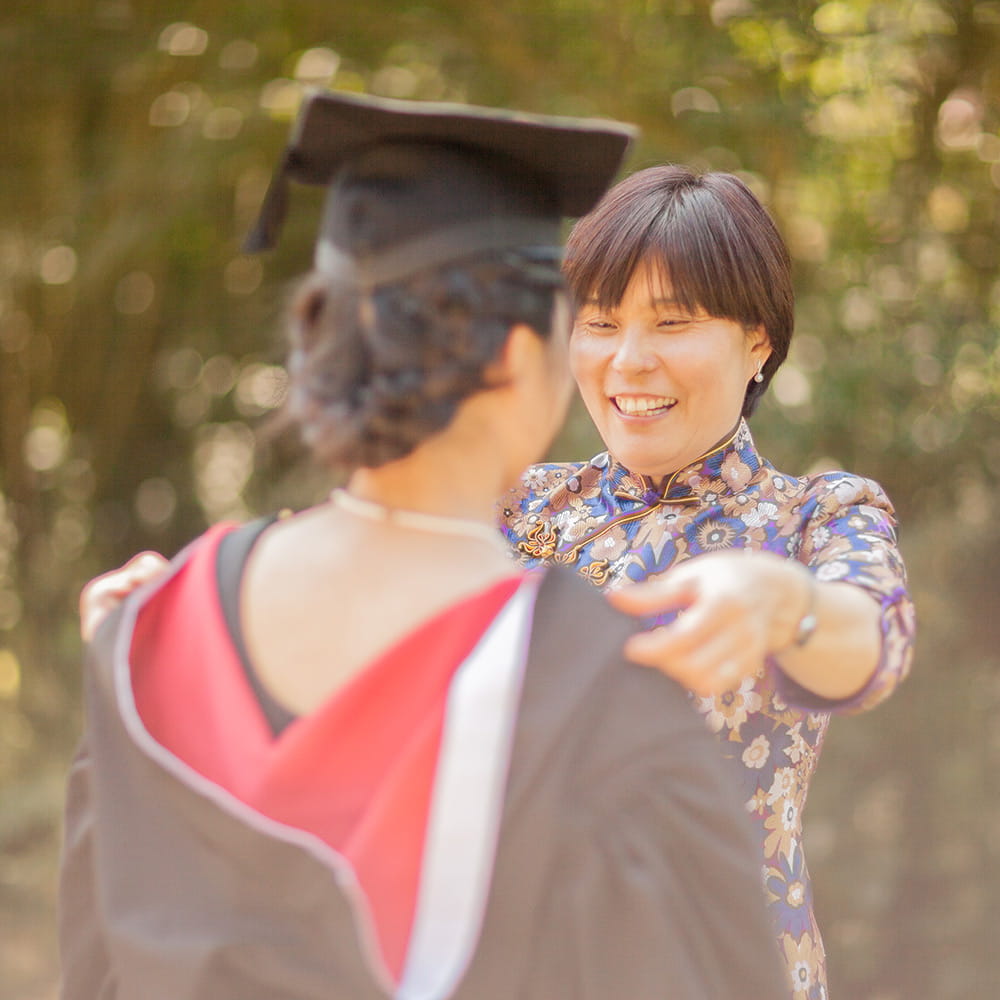Your valuable support
We value your vital supporting role as a family member of a new Essex student, and welcome you too
as a member of our university's community. Starting university is an exciting time for any new student, but it can also
be a time of uncertainty; homesickness, making friends and adjusting to a degree-level course can all raise concerns
for new students. If you're the family or friend of a new student, it can be a challenging experience for you too.
A big step
University is very different from school; your new Essex student's an adult now, responsible for their own
finances, academic attendance and performance, diet, social life, sleeping habits and everything
else that involves being a student. For parents, because our relationship, as a university, is with the student,
you'll find that support advisors, personal tutors, lecturers, and accommodation staff won't be in a position to
speak to you about how your son or daughter is doing, due to our duties and responsibilities under the Data Protection Act.
Helping to build resilience
However, that doesn't mean we can't listen to you, and suggest ways you could lend your support to help your new Essex student build resilience.
A good place for you to start is by getting familiar with the really broad range of support services we offer to students, alongside those offered independently by
our Students' Union. Once you do so, you'll know where to guide your new Essex student,
if they need any extra help or advice.
Study help
During vacations, it is easy for students to get distracted and forget about their studies.
But students will often have coursework or exams due soon after the start of term. While
it is the responsibility of the student to deal with their own studies, you can consider
how the home is encouraging them to do some coursework and revision. Students often say that
a helpful study technique is chatting about what they’ve learnt with a family member. It doesn’t
matter if they haven’t learnt the subject, because by chatting it through, they realise what
they have learnt and what they need to revise. Chatting about what you’re learning can build
subject knowledge, and increase motivation to study. You might even be interested
to read some of their work.





